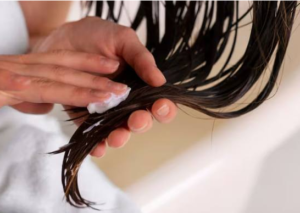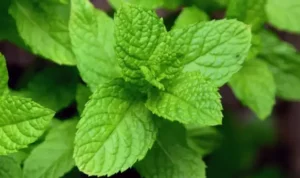Following a healthy and balanced diet is essential to providing the essential vitamins for healthy hair . It’s also essential to preventing hair loss .
Otherwise, episodes of diffuse alopecia may occur due to malnutrition or inadequate nutrition.
Furthermore, a lack of these vitamins doesn’t just affect scalp hair. A deficiency can also cause eyebrow alopecia and eyelash loss.
Therefore, it is important to include foods that are beneficial for hair in your diet.
For their part, dietary supplements can be very useful during times of increased need for vitamins. For example, if hair loss occurs due to stress or postpartum.
But what are the best vitamins for hair?
B vitamins play a key role in hair health . Specifically, biotin (vitamin B7), pantothenic acid (vitamin B5), and vitamin B6 .
At the same time, vitamins A, C, D, and E are equally convenient to help maintain hair vitality.
So, these would be the 5 main vitamins for healthy hair:
1) Vitamin A
Vitamin A is a great antioxidant and is essential for the formation of new cells throughout the body.
As for hair, it helps the glands in the scalp produce sebum, the natural oil that keeps it hydrated. This also helps prevent flaking and an itchy scalp.
Sources of vitamin A include spinach, dairy products, eggs, liver, and cashews. Vegetables containing beta-carotene, a precursor to vitamin A, such as carrots and cantaloupe, are also good sources.
2) B vitamins
The best-known hair vitamins are possibly those in the B group, because they help hair grow healthily.
This is because they are responsible for transporting the necessary oxygen and nutrients to the scalp.
The entire vitamin B complex plays a prominent role in hair health, but some are particularly interesting, such as biotin, pantothenic acid, vitamin B6, vitamin B3, folic acid, and vitamin B12.
- Biotin
This vitamin, also known as vitamin B7, vitamin H, and vitamin B8, stimulates hair growth and helps regenerate it.
Biotin is found in foods such as dairy products, meat, fish, eggs, and organ meats. It is also found in plant-based sources such as legumes, seeds, nuts, sweet potatoes, and broccoli.
Since biotin contributes to hair growth, it is believed that supplements of this vitamin may have a beneficial effect on hair loss.
- Pantothenic acid
Pantothenic acid or vitamin B5 appears to have a beneficial effect on weak hair.
In this sense, recent studies suggest that it could strengthen hair, prevent hair loss, and improve hair density.
Almost all foods contain pantothenic acid naturally.
However, meat, seafood, organ meats, eggs, and milk are rich sources of vitamin B5.
Avocados, mushrooms (especially shiitake mushrooms), potatoes, broccoli, cereals (whole wheat, brown rice, and oats), chickpeas, peanuts, and seeds also contain significant amounts of this vitamin.
B vitamins are beneficial for hair health, especially biotin, pantothenic acid, and vitamin B6.
- Vitamin B6
Vitamin B6, also known as pyridoxine, promotes hair density. It does this by prolonging the hair’s life cycle and, as a result, delaying hair loss.
Sources of vitamin B6 include foods such as tuna, salmon, poultry, legumes, potatoes, and bananas.
- Vitamin B3
Vitamin B3, or niacin, promotes the growth of healthy, beautiful hair. A B3 deficiency can cause hair to lose its shine.
This nutrient is present in foods of animal origin, nuts, legumes, and cereals.
- Folic acid
Folic acid is beneficial for healthy cell growth and, therefore, may play a role in hair regeneration.
A recent study also found that folic acid deficiency may be linked to premature graying.
This B vitamin is found primarily in dark green leafy vegetables, legumes, and citrus fruits.
- Vitamin B12
A lack of vitamin B12 has also been linked to the premature appearance of gray hair.
Supplementation with this vitamin and folic acid, on the other hand, has shown a protective effect on this premature aging of the hair.
Foods rich in vitamin B12 include organ meats, seafood, meat, eggs, and milk.
3) Vitamin C
Vitamin C is a powerful antioxidant and helps combat oxidative damage to cells (caused by solar radiation, stress, lack of sleep, etc.).
This hair vitamin is interesting for several reasons.
First, it promotes better blood circulation to the hair follicles. Consequently, there is a greater flow of nutrients, which contributes to healthy hair growth.
Vitamin C is also essential for collagen production. This protein is present in the natural structure of hair and is responsible for giving it firmness.
It is also vital for the absorption of iron, a key mineral for hair health.
It is worth remembering that hair loss due to iron deficiency is common and is due precisely to an insufficient supply of this mineral.
Foods rich in vitamin C include red peppers, citrus fruits, strawberries, tomatoes, broccoli, and green leafy vegetables.
4) Vitamin D
Studies have shown that vitamin D helps create new follicles (the cavity in the skin where hair grows).
This means that this vitamin plays a role in the formation of new hair and can therefore improve hair density.
The body produces vitamin D when the skin comes into contact with solar radiation.
Fatty fish (trout, salmon, tuna, mackerel) and fish liver oils are among the best dietary sources of vitamin D.
Beef liver, eggs, cheese, and some mushrooms can also provide small amounts of this nutrient, as can fortified foods such as milk and plant-based beverages.
5) Vitamin E
Like vitamin C, vitamin E has a powerful antioxidant effect and helps prevent oxidative stress.
Foods rich in vitamin E include sunflower seeds, vegetable oils, nuts such as almonds, spinach, and broccoli.
All of these vitamins for healthy hair are beneficial for both men and women. And not just for your hair, but for your nails too.
The lack of these nutrients can cause split and yellow nails to appear, in addition to being one of the reasons why nails fall off.
On the contrary, a diet rich in these vitamins will help not only revitalize hair but also strengthen nails.
Other important nutrients for hair health are iron, zinc, magnesium, and amino acids such as L-cysteine.
In the case of iron, women tend to be more prone to iron deficiency, especially during their fertile years due to menstruation, pregnancy, and the postpartum period.
Beyond vitamins for hair, it’s also essential that your diet be rich in protein and provide different types of amino acids.






















+ There are no comments
Add yours